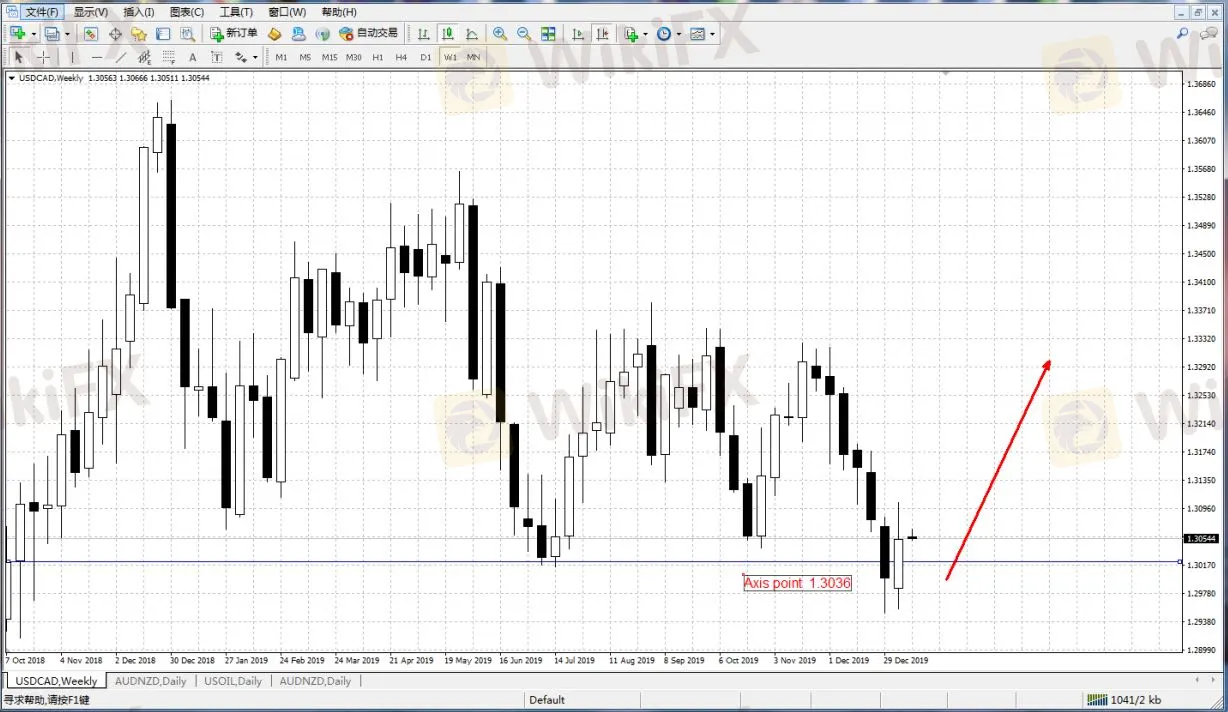简体中文
繁體中文
English
Pусский
日本語
ภาษาไทย
Tiếng Việt
Bahasa Indonesia
Español
हिन्दी
Filippiiniläinen
Français
Deutsch
Português
Türkçe
한국어
العربية
CAD Will Have Less Upward Momentum in the New Year
Ikhtisar:As the G10 currency that performed the best in 2019, Canadian dollar may see a rather smooth horizontal trend this year partly because weakening domestic economy, and partly because the positive influence of easing trade tensions has been fading. CAD rose 5% against the USD in 2019, with nearly half of the increase gained in the last few weeks, benefiting as several other currencies from a reduce of risk factors at the end of 2019.
As the G10 currency that performed the best in 2019, Canadian dollar may see a rather smooth horizontal trend this year partly because weakening domestic economy, and partly because the positive influence of easing trade tensions has been fading. CAD rose 5% against the USD in 2019, with nearly half of the increase gained in the last few weeks, benefiting as several other currencies from a reduce of risk factors at the end of 2019.
Recently released data showed Canada‘s economy is slowing down, suggesting a great likelihood of interest rate cut from the central bank. The Bank of Canada had held interest rate at 1.75% unchanged last year, amid a wave of rate slash by major central banks like the US Federal Reserve and the European Central Bank. Statistics released in the recent few weeks show Canada’s economy shrank 0.1% in October, 2019, while November saw a decline of over 70,000 jobs. Canadas annualized growth based on the quarter-over-quarter rate of Q4 is estimated to be under 1%.
As risk factors will not significantly reduce in 2020, from a technical perspective, 1.3036 will be the pivot point for USD/CAD in the first half of 2020, and if the exchange rate remains above this level, USD may rise against CAD.

Disclaimer:
Pandangan dalam artikel ini hanya mewakili pandangan pribadi penulis dan bukan merupakan saran investasi untuk platform ini. Platform ini tidak menjamin keakuratan, kelengkapan dan ketepatan waktu informasi artikel, juga tidak bertanggung jawab atas kerugian yang disebabkan oleh penggunaan atau kepercayaan informasi artikel.
Baca lebih banyak

Inggris Resmi TInggalkan Uni Eroa Berapa Kerugiannya?
Inggris secara resmi telah meninggalkan Uni Eropa pada tanggal 31 Januari 2020, dan akan segera memulai negosiasi dengan Uni Eropa mengenai hubungan bilateral di masa depan.Hal ini diyakini bahwa Brexit akan menimbulkan dampak negatif pada Uni Eropa dalam berbagai aspek.

Situasi Makro Membatasi Tren AUD
Data terakhir menunjukkan bahwa tingkat CPI kuartal keempat Australia adalah 1,8%, yang masih lebih rendah dari kisaran target jangka panjang RBA yaitu 2% -3%. Sejak 2017, inflasi Australia belum mencapai kisaran ini.

Indikator Ekonomi Tentang GBP
Pemilihan Inggris pada akhir 2019 diadakan dengan latar belakang kemerosotan ekonomi. Data terbaru menunjukkan bahwa pertumbuhan ekonomi Inggris terhenti dan pasar tenaga kerja yang dulu kuat mulai melemah. Pada paruh pertama 2020, pound mungkin mulai menemukan jalannya dari ekonomi domestik, Bank Inggris dan anggaran Maret yang paling kritis. Selain itu, negosiasi Brexit hanya pada tahap awal, dan apakah kesepakatan perdagangan bebas akhirnya dapat dicapai juga penting.

Lemahnya Permintaan Pasar AUD di Dalam dan Luar Negeri
Ekonomi Australia menunjukkan tanda-tanda kelemahan pada 2019, karena pertumbuhan upah yang stagnan dan utang yang tinggi telah menyebabkan konsumen memangkas pengeluaran secara signifikan.
WikiFX Broker
Berita Terhangat
Dana Prop Firm PipFarm DIKURAS Oleh 800 Anggota Kartel Perdagangan
XTB Hapus Biaya Komisi Pertukaran Mata Uang Sebesar 0,5% Pada Kartu Multi-Mata Uangnya
BERMASALAH Di Indonesia ! Program Afiliasi IB Weltrade Banyak Memakan Korban
CFTC Memperingatkan Kemunculan Era PENIPUAN AI 2025 Untuk Menipu Investor
Enlighten Securities Limited DIHUKUM Denda 5 Juta Dolar Oleh SFC Hong Kong
Broker NinjaTrader Mengonfirmasi Akuisisi senilai $1,5 Miliar Oleh Kraken
Nilai Tukar







